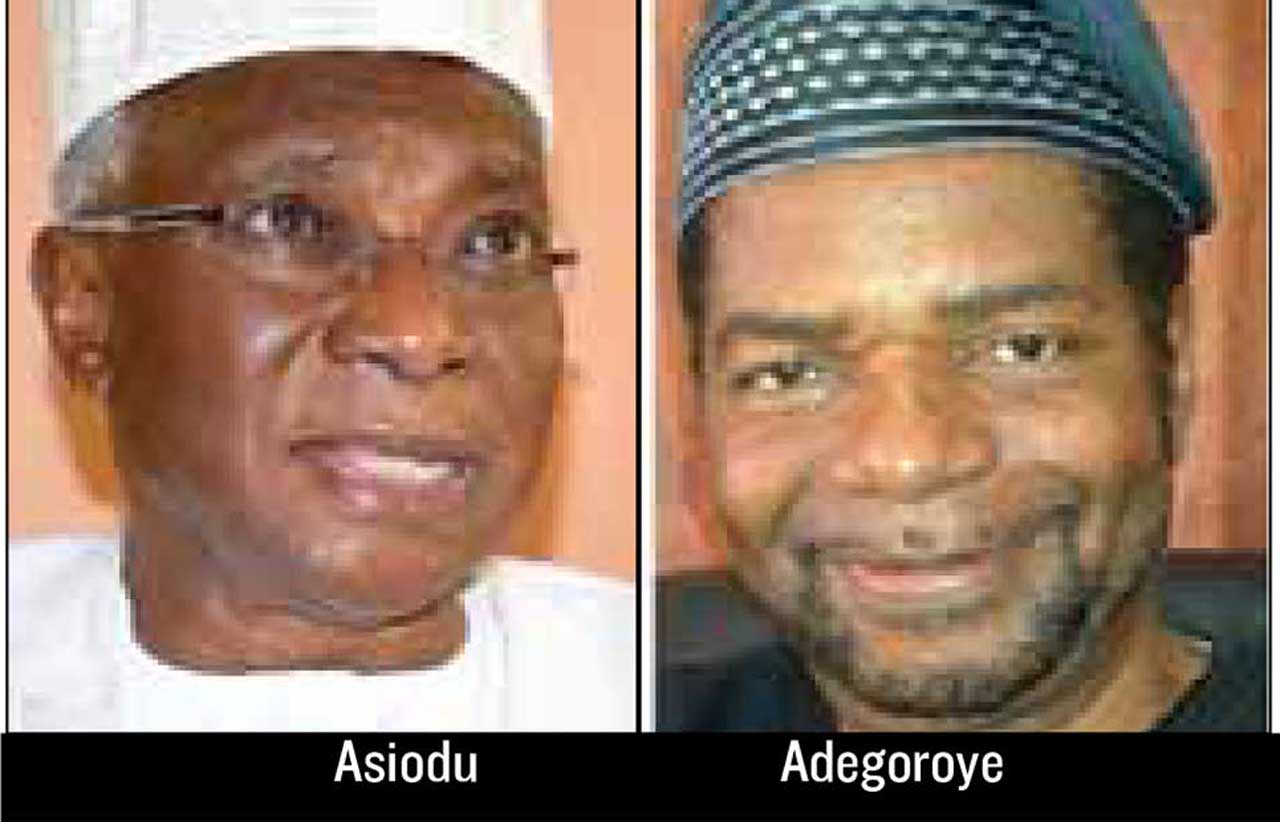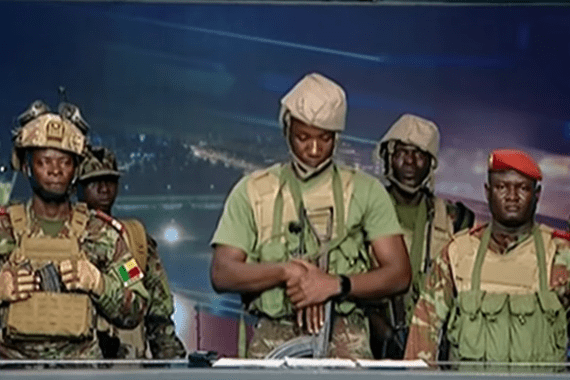
That the Nigerian polity is facing some critical challenges that bother on its fundamental existence has been at the front burner of national discourse for a while now. On the one hand, there is the scourge of religious fundamentalism in the form of the dastardly acts of the Boko Haram insurgents who constitute a critical non-state challenge to the Nigerian government.
Many Nigerian lives have been lost to multiple bomb explosions and the unconscionable acts of the suicide bombers. On the other hand, there is the war drum being sounded by ethnic agitators, especially the IPOB/MASSOB secessionist unrest that has put the Biafra question in the public sphere. We should not also forget the militancy in the South-south which has critically affected the economic dynamics of Nigeria’s crude oil business. All these point at a polity that stands the danger of implosion from too many landmines challenging the very foundation of the state.
While the Nigerian situation may not be said to be unique—since most states in the world also have a peculiar blend of their own internal predicament—what seems galling is the deliberate silence of the Nigerian elite to urgently come to term with this dire situation before what we fear the most happen to us. Take the recent and continuing agitation for the restructuring of the Nigerian polity as a very good instance of the ostrich game that the Nigerian elite keeps playing while the fate of the Nigerian state hangs in the balance. It seems very clear to everyone else, except the elites of course, that outside of a restructured polity, the Nigerian state stands the danger of disintegration steadily facilitated by the many state and non-state actors struggling for the soul of Nigeria. Yet, the political elite have refused blatantly to give thought to this legitimate agitation to rethink the basis on which Nigerians and its federating constituents will functionally live together.
To use Odia Ofeimun’s significant phrase, this is a pure instance of not taking Nigeria seriously. For the poet, the Nigerian political elite stand indicted, since independence, for turning the national question into a complex game of winner-takes-all that has led to politicking in Nigeria becoming a zero-sum game of personal aggrandizement and corrupt enrichment. Not taking Nigeria seriously stems from the fact that the political elite themselves stand to gain the most from the current status quo, and hence the indifferent to the legitimate outcry from well-meaning Nigerians to rethink and reinvent the Nigerian state. Federalism is a political arrangement that has worked in some other plural states in the world. Federalism can work in Nigerian given the political will and the collective enthusiasm to put the necessary factors and machineries in place. Yet, we keep sidetracking this urgent issue. And for good reason too, at least within the logic of elite opportunism.
When Professor Richard Joseph came calling at the Ibadan School of Government and Public Policy (ISGPP) at a recent seminar to celebrate his continuing engagement with the Nigerian political situation as well as the evergreen relevance of his thesis on the prebendal nature of Nigerian politics, it became another critical occasion to brainstorm on how debilitating the Nigerian state has become, especially to the demands of democratic governance and empowering developmental dynamics. Prof. Richard’s groundbreaking book, Democracy and Prebendal Politics in Nigeria, was published in 1987. And like all magnum opus, its thesis about the Nigerian political predicament remains central to the questions we continue to raise about what is going wrong with the Nigerian state. This is essentially because Richard began the book with a fundamental political question: “What is the nature of the fundamental processes of Nigerian political life?” And he dedicated the complex arguments and analyses in the entire book to unraveling this fundamental question. Democracy and Prebendal Politics in Nigeria therefore becomes an intellectual’s way of taking Nigeria seriously, in Ofeimun’s sense. And this is the reason why the ISGPP deemed it fit as the focus of a seminar that attracted the cream of Nigeria’s social science intelligentsia as well as other significant members of the Nigerian public sphere.
In the book, Richard Joseph critically engaged with how the fundamental nature of politics, as the intense struggle over scarce resources, is demonstrated within the context of a developing state like Nigeria. The nature of the Nigerian state makes it critical factor in what is ultimately possible in the hands of a political elite that wields ultimate political power. Thus, Richard Joseph’s thesis of prebendalism and prebendal politics in Nigeria focuses on, in his words, “the centrality in the Nigerian polity on the intensive and persistent struggle to control and exploit the offices of the state.” Holding political power and having access to political offices not only allow the politicians and the political elites to perpetuate themselves against the democratic wishes of the people, but it also enable them to dole out state resources in a clientelist network of patronages and corruption. It is not difficult in any way to see how this understanding of the Nigeria political and development predicament continues to serve as the basis for our collective befuddlement close to sixty years after independence.
Thus at the ISGPP seminar on “Prebendalism and the Nigerian Project,” there was an occasion for Richard Joseph and other concerned intellectuals to outline the existing context of realpolitik oiled by a political sociology of crass opportunism that has served as the template that consistently incentivized a corrupted political behavior.
The critical downside of a prebendal politics in Nigeria since the Second Republic is that it has undermined the internal capacity the Nigerian state has to instigate its own development. And this is because those who hold the rein of power in the state have decided to deploy critical state institutions and structures to exploitative rather than developmental and democratic objectives. What Herbst and Mills calls Africa’s third liberation therefore hangs in the balance in Nigeria. In Africa’s Third Liberation, Mills and Herbst already argue that the next phase of Africa’s liberation (apart from the first liberation from colonialism and the second liberation from autocracy) will involve surmounting what they call the “infrastructural gap” as a means of projecting Africa into the global economic space. But this will only happen, according to them, if Africa states, especially Nigeria, will free themselves from a crippling “political economies characterised by graft, crony capitalism, rent-seeking, elitism and, inevitably, widening (and destabilising) social inequality.”
It is this critical context created by the prebendal politics of Professor Richard Joseph and the liberation politics of Herbst and Mills that generated the intense discussion at the ISGPP seminar. And the background to the various critical comments of the interlocutors of the prebendal thesis is the ominous situation in Nigeria signaled lately by the notice to Igbos to leave the North and leave Nigeria. As usual, there has been a cacophony of ambivalent outcries, especially from the political elite. But the challenge is that of how to tame the centrifugal forces that constantly threatens the unity of the Nigerian state. What Is even more crucial are those at the helms of affairs who have undermined the vitality of the Nigerian state to deal with internal dissensions. The challenge the panelists at the Seminar confronted and engaged with is that of how the thesis of prebendalism could serve as the template for fabricating a template for inserting Nigeria into a dynamic and enabling matrix where democracy instigates developmental progress.
It was not difficult at all to identify several instances of political malaise that still make the Nigerian situation a terrible one—pandemic corruption, persistent prebendal practices and attitudes, the leadership listlessness, and the lopsided structure of the Nigerian federalism. One of the most significant issues that came up for discussion is the persistence of warped memories that has generated terrible distrust essentially because the Nigerian state has refused to provide the template around which such false and incomplete, or even deliberately distorted, memories could be engaged and corrected. The mutual distrust that characterise ethnic relations in Nigeria is further fueled by what each ethnic group thinks about its place in the prebendal structure of the Nigerian state. One of the critical diagnoses of the Nigerian predicament is that the state has disappeared from the lives of most citizens in terms of the comatose infrastructural framework which could have facilitated their democratic empowerment. The people therefore found a different locus of meaning in their various ethnic enclaves which then serve as the prism with which to refract and perceive various national issues.
Take the IPOB/MASSOB agitations for secession for instance. The Biafra issue has been dissolved into numerous memories each with its own supposedly legitimate claim on the interpretation of the fact of the war. Those agitating for the realization of Biafra have a specific trajectory of historical “facts” which deemed them as victims, while those on the other side of the national divide contend that the war was fought within the accepted parameters of conflict. Both sides believe in the veracity of their case, yet we have decided to keep the Biafra issue in the cooler of national silence. Thus, it takes little reflection to see how warped memories can serve as a centrifugal force when it confronts a lopsided federalism that centralised critical institutional and constitutional matters, and neglects regional impulses that is suitable to Nigeria’s plural dynamics. There is therefore a level of institutional awareness that is needed for Nigeria to transcend the anomalies that characterize the Nigerian state. And inevitably, we return to the federalism/restructuring debate and the urgent task of making Nigeria work.
We have made the point that a specific status quo in Nigeria, our strange unitary-federal arrangement, engenders a particular logic of opportunism amongst the political elite. In other words, the political system and culture, as is, makes it possible for some to benefit at the expense of millions of Nigerians who deserve a better democratic deal. Prebendalism festers right in the context where the state provides the lucrative opportunities for corrupt enrichment. And what better hope for aggrandizement than a system that centralizes everything, from appointments to finance? Re-federalizing portends more hope for Nigeria than her leadership is willing to admit. And that task, when push comes to shove, must become the point of a collective will by which Nigerians themselves take over the soul of their country.
When the ISGPP seminar came to an end, Professor Richard Joseph and all the other eminent scholars, intellectuals and civil society activists at the occasion projected a template of hope at several levels. First, the Nigeria predicament is still an ongoing discourse that has become as urgent as preserving the unity of Nigeria. Second, the discourse is not only mundane and street corners projection of bitterness and anger, but also carried out at the critical level by those who not only understand the predicament but have the will power to influence change. And finally, optimism has not died. For, it is when we lose that potent force that Nigeria immediately fails.
Dr. Olaopa is executive vice chairman, Ibadan School of Government and Public Policy (ISGPP), Ibadan.






